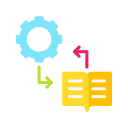Building Futures: Financial Literacy Curriculum Development
Chosen theme: Financial Literacy Curriculum Development. Welcome to a space where practical money skills become part of everyday learning—designed for classrooms, after-school programs, and families. Explore strategies, stories, and resources that make financial education engaging, inclusive, and measurable. Subscribe to stay updated with new lessons and tools.


Define age-appropriate objectives that spiral upward: recognizing coins in grade one, evaluating credit products by middle school, and comparing student loan options in high school. Each objective builds durable understanding, not fleeting trivia. Comment with your favorite objectives to inspire fellow educators.

Map objectives to state standards and integrate math, social studies, and ELA connections. Budgeting applies proportional reasoning, economic history contextualizes credit, and persuasive writing supports consumer advocacy. Share how your district aligns across subjects, and subscribe to receive alignment checklists and exemplars.

Replace recall items with demonstrations: build a savings plan, analyze a paycheck stub, negotiate a mock lease. Rubrics prioritize reasoning and behavior change, not memorization. Tell us which performance tasks worked best, and we will publish a community-sourced bank of assessment ideas.
Designing Lessons Students Remember
Use short, character-driven stories—like Maya choosing between a used car and public transit—to frame trade-offs and long-term costs. Stories invite empathy and discussion while introducing vocabulary naturally. Share your favorite classroom story arcs, and subscribe for new narrative case libraries.
Supporting Teachers Every Step
Professional Learning That Respects Time
Offer bite-sized modules on core concepts—compound interest, credit scoring, tax basics—paired with ready activities. Blend asynchronous learning with coaching cycles. If your staff prefers co-teaching demonstrations, tell us; we will share model lesson videos and facilitator guides in future posts.
Ready-to-Teach Resources and Pacing Guides
Provide editable slides, teacher notes, answer keys, and 36-week pacing maps. Clearly mark required versus optional tasks. Teachers can swap examples without losing coherence. Comment with your pacing challenges, and we will crowdsource solutions from districts with similar schedules and constraints.
Coaching, PLCs, and Feedback Loops
Use PLC protocols to examine student work from budgeting projects and paycheck analyses. Celebrate growth, identify misconceptions, and refine rubrics together. Share your PLC process and we will compile a living playbook of routines that best support financial literacy curriculum development.
Inclusive, Culturally Responsive Money Education
Localize lessons with neighborhood wage data, rent trends, transit options, and banking deserts. Discuss systemic barriers and practical strategies for navigating them. Ask students to propose community solutions. Share your local datasets, and we will feature them in a resource roundup.
Inclusive, Culturally Responsive Money Education
Send home conversation starters in multiple languages, host evening workshops, and invite caregivers to share saving strategies. Provide plain-language guides to credit, taxes, and banking. Tell us which formats reach families best, and subscribe to get printable templates for your next event.


Smart Use of Digital Tools

Evaluate simulators for realistic complexity, classroom controls, and equity of access on low-bandwidth devices. Look for scenarios covering saving, borrowing, investing, and taxes. Share your evaluation rubric, and help other schools select tools that truly support financial literacy curriculum development.
Measuring Impact and Iterating
Combine brief concept checks, behavior trackers, and reflection prompts into a dashboard teachers can actually use. Focus on trends, not perfection. Post your favorite indicators, and we will publish anonymized exemplars to help teams benchmark growth responsibly.


Measuring Impact and Iterating
Have students compile budgets, savings plans, credit analyses, and postsecondary cost comparisons. Culminate with a capstone presentation to families or community partners. Invite your students to share reflections, and we will highlight powerful artifacts in an upcoming showcase.



